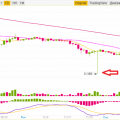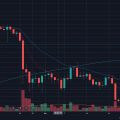Distributed ledger technology remains one of the hottest trends among financial,government and commercial organizations worldwide. ForkLog Magazine offers an overview of the most interesting initiatives of the past week.
International Chamber of Commerce uses blockchain to reduce carbon emissions in commercial aviation
International Chamber of Commerce (ICC) concludeda partnership with Perlin blockchain companies in Singapore and California-based AirCarbon (Newlight Technologies), which will work to reduce carbon emissions in commercial aviation.
As part of the initiative, which was announced at the UN Climate Change Conference in Madrid, $ 40 billion will be allocated for climate projects in the aviation industry.
</p>“We strive to ensure that all large companiesdealt with climate issues, supporting research, development and implementation of digital solutions. As part of the partnership, technological capabilities will be used to accelerate innovation in carbon reduction. ”— said ICC Secretary General John Denton.
Under the terms of the partnership, ICC will facilitatedistributing AirCarbon carbon credits. The solution is a blockchain-based trading network for carbon compensation and reduction for international aviation (CORSIA). Well-known eco-activist Greta Tunberg may be pleased.
Note that this is not the first example.blockchain collaboration between ICC and Perlin. So, in April of this year, it was announced that they would work together to improve and modernize supply chain management for ICC member companies, including Amazon, Coca-Cola, Fedex, McDonald’s and PayPal.
In October, it became known that the Singapore Maritime Shipping Association (SSA), together with ICC and Perlin, will develop a blockchain system for registering ships.
GUAM countries will introduce blockchain in the work of customs services
During the Friday, December 13th,of the summit of the heads of government of GUAM countries (Georgia, Ukraine, Azerbaijan, Moldova) in Kiev, the parties signed several documents aimed at strengthening the economic cooperation of the member states of the organization and increasing the volume of trade
In particular, the heads of customs administrations of the GUAM member states signed two protocols of intent:on using blockchain technologies in the process of verification of certificates of origin of goods, as well as the mutual recognition of an authorized economic operator.
«In the near future, these protocols willintentions will be realized. Both documents are very important for establishing efficient customs operations and prompt passage of goods through state borders. I am sure that this will significantly simplify trade between our states»,— said Prime Minister of Ukraine Alexey Goncharuk.
Bank of China issued $ 2.8 billion blockchain bonds
The fourth largest state bank, the Bank of China, has issued two-year blockchain bonds for small businesses totaling $ 2.8 billion.
To issue digital certificates, Bank of China used its own blockchain system.
“This is also the first blockchain-based system for accounting for bond issues in the country,”— the financial institution said in a statement.
Securities will go on sale with an interest rate of 3.25% per annum.
Thus, the bank hopes to raise fundsto support small business in the country. As of September, as part of this initiative, the bank provided loans to small and micro enterprises for a total of $ 57.7 billion.
Rosseti will introduce a blockchain for electricity metering
The power grid company Rosseti will begintest the blockchain system to increase the transparency of electricity metering. This was reported by the Waves Enterprise platform, the solution of which became one of the five final prototypes selected by Rosseti for testing.
The Rossetey pilot project aims to assess the possibilities of using blockchain systems to build relationships between producers, suppliers and end users of electricity.
Initially, testing will take place in the Kaliningrad and Sverdlovsk regions.
The project is divided into three phases. According to the results of the first, which has already ended, various companies have developed solutions for the automation of electricity metering, and Rosseti has developed their vision of using blockchain for established purposes.
As part of the second phase, testing will be held inselected areas, and based on its results, they plan to extend the blockchain system to the entire territory of Rossetey’s presence. The contractor will be selected based on the results of the tender.



